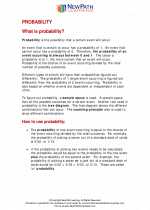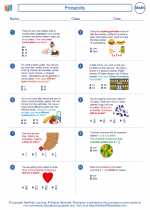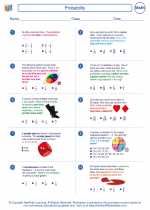Qualitative Methods
Qualitative methods are a set of research techniques used to gather non-numerical data about the social and human world. These methods are used in various fields such as sociology, anthropology, psychology, and education to understand people's behaviors, experiences, and perceptions.
Key Characteristics of Qualitative Methods
- Open-ended: Qualitative methods use open-ended questions to allow participants to express their thoughts and feelings freely.
- Subjective: These methods focus on understanding the subjective experiences and perspectives of individuals.
- Flexible: Researchers have the flexibility to adapt their methods based on the context and emerging findings.
- Inductive: Qualitative research often involves the generation of new theories or hypotheses based on the collected data.
Common Qualitative Research Methods
There are several qualitative research methods, including:
- Interviews: In-depth, one-on-one conversations with participants to gather detailed information.
- Focus Groups: Group discussions that allow participants to interact and share their perspectives on a specific topic.
- Observation: Researchers observe and document the behaviors and interactions of individuals in natural settings.
- Content Analysis: A method for analyzing the content of written or visual materials to identify patterns and themes.
- Case Studies: In-depth examinations of a specific individual, group, or organization to understand a particular phenomenon.
Advantages of Qualitative Methods
- Provide rich, detailed insights into complex social phenomena.
- Allow for the exploration of new and unexpected findings.
- Facilitate the understanding of individuals' perspectives and experiences.
- Can be used to study sensitive topics that require a nuanced approach.
Study Guide for Qualitative Methods
If you're studying qualitative methods, here are some key points to focus on:
- Understand the philosophical foundations of qualitative research, including phenomenology, ethnography, and grounded theory.
- Learn about the different data collection methods used in qualitative research, such as interviews, focus groups, and observation.
- Explore the process of data analysis in qualitative research, including coding, thematic analysis, and the interpretation of findings.
- Consider the ethical considerations and challenges associated with conducting qualitative research, such as informed consent and confidentiality.
- Examine the applications of qualitative methods in various disciplines and real-world contexts.
By mastering these key points, you'll develop a comprehensive understanding of qualitative methods and their significance in the field of research.
.◂Math Worksheets and Study Guides Sixth Grade. Probability
Study Guide Probability
Probability  Worksheet/Answer key
Worksheet/Answer key Probability
Probability  Worksheet/Answer key
Worksheet/Answer key Probability
Probability  Worksheet/Answer key
Worksheet/Answer key Probability
Probability 

 Worksheet/Answer key
Worksheet/Answer key
 Worksheet/Answer key
Worksheet/Answer key
 Worksheet/Answer key
Worksheet/Answer key

The resources above cover the following skills:
Statistics and Probability (SP)
Develop understanding of statistical variability.
Recognize a statistical question as one that anticipates variability in the data related to the question and accounts for it in the answers. For example, “How old am I?” is not a statistical question, but “How old are the students in my school?” is a statistical question because one anticipates variability in students’ ages.
Ability to introduce and develop statistical reasoning.